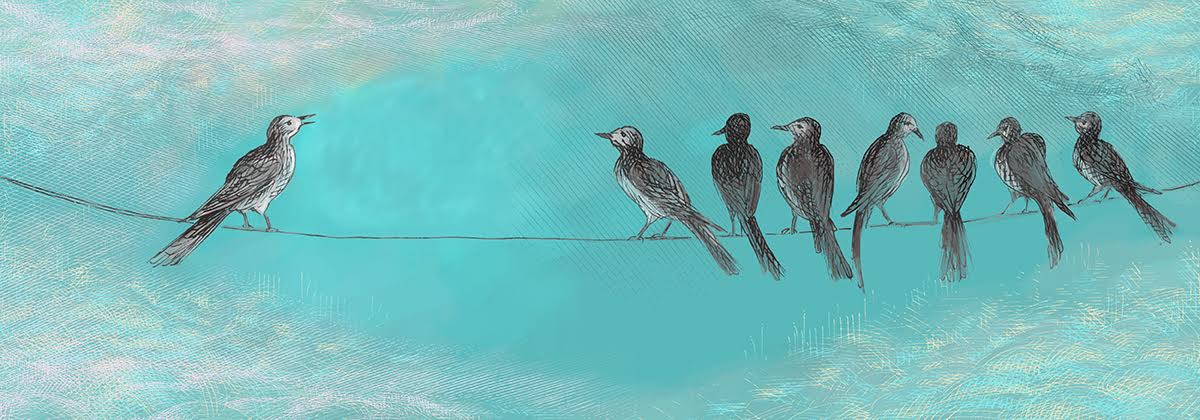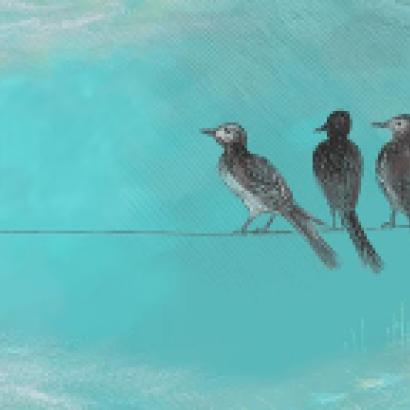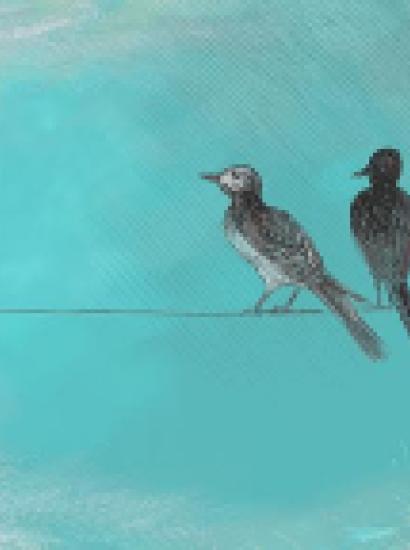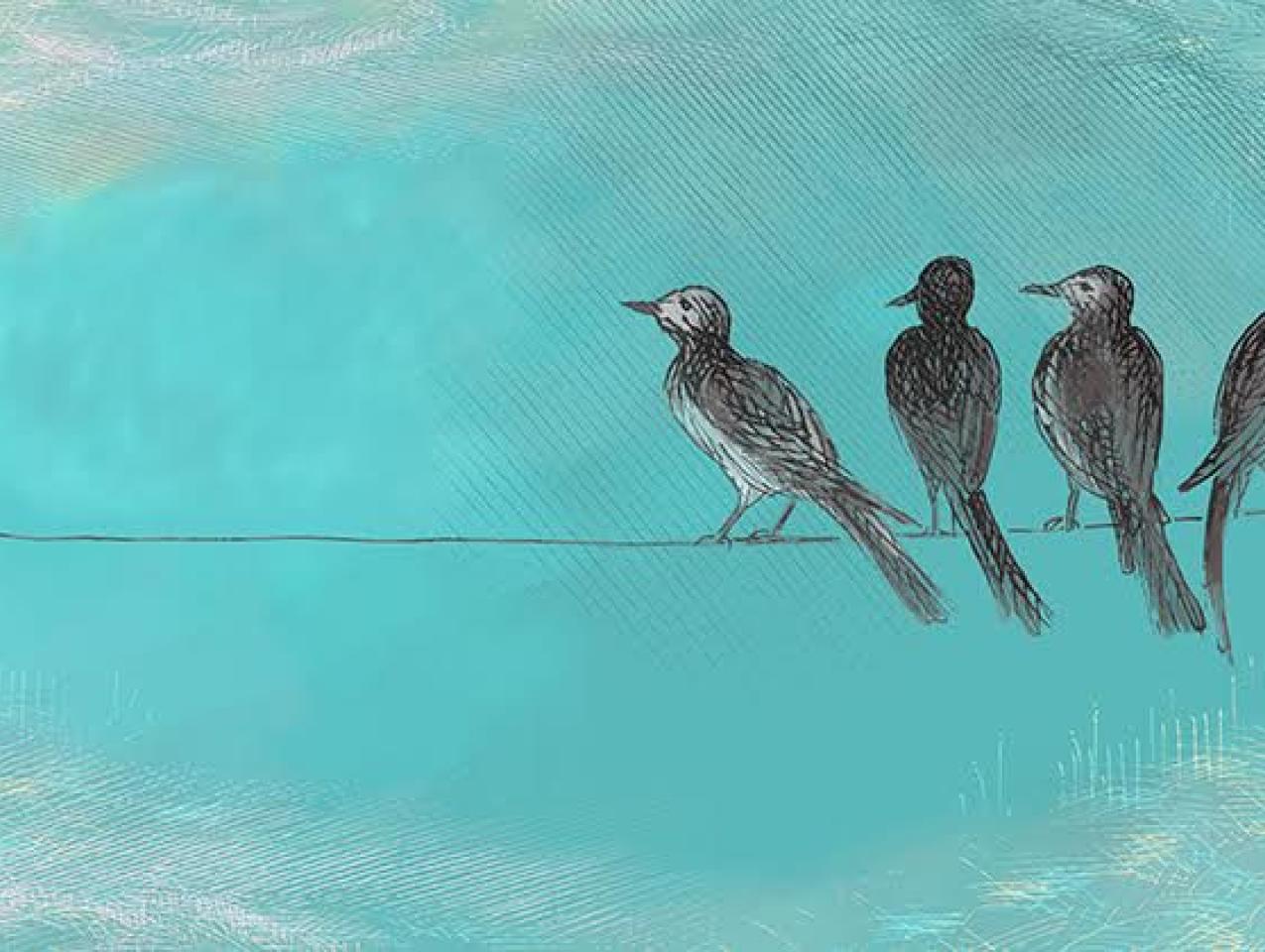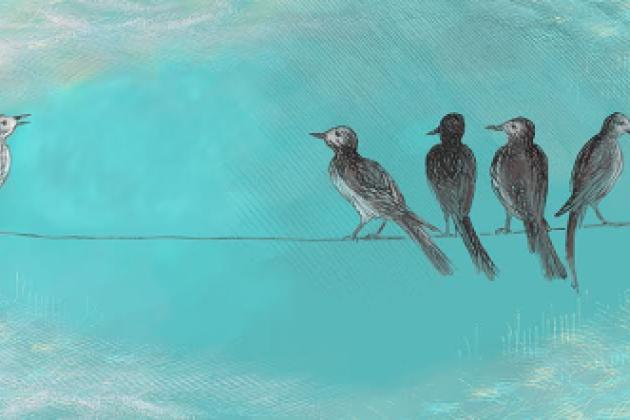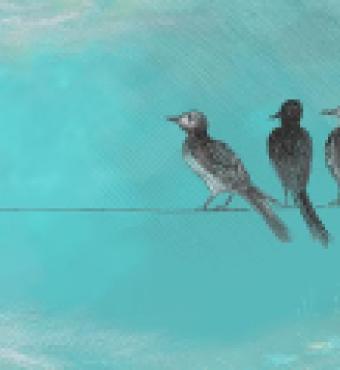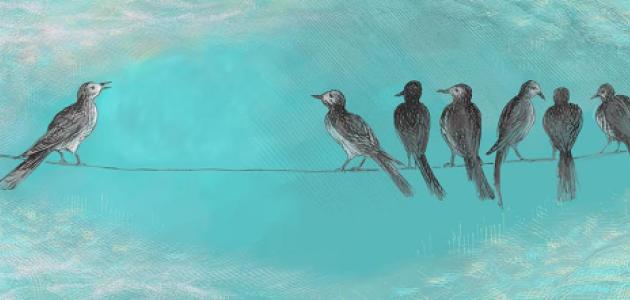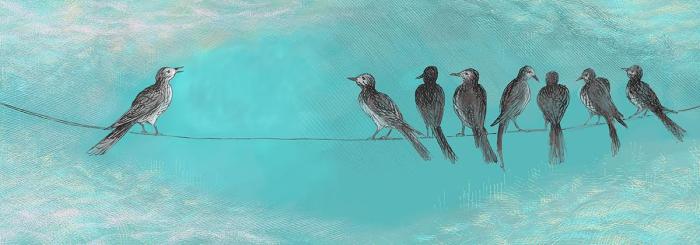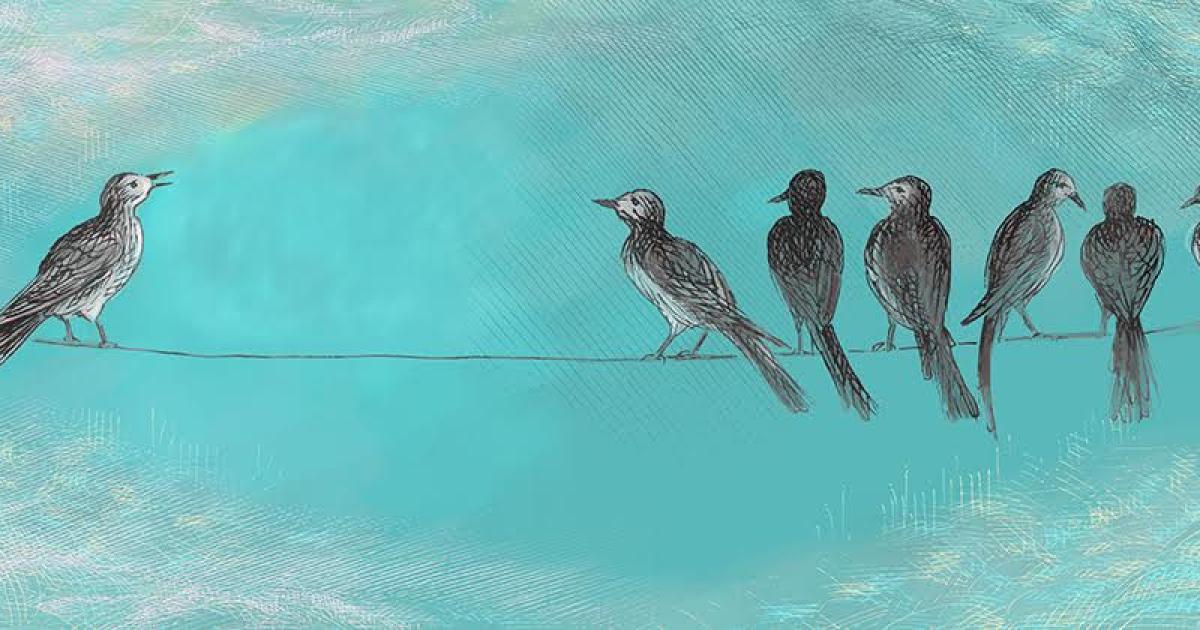Google “Atticus Finch” and you will find hundreds of confident avowals that the compassionate, egalitarian lawyer of To Kill a Mockingbird has been revealed as a bigot in Harper Lee’s recently released book Go Set a Watchman. “What will readers make of a bigoted Atticus Finch?” queried Maddie Crum in the Huffington Post. “Harper Lee novel reveals Finch as a ‘bigot’” headlined the BBC. “Atticus Finch’s bigotry is placed in the context of a painful story of maturation” asserted Time. “Atticus Finch depicted as a racist bigot in Go Set a Watchman” declared The Telegraph.
Atticus Finch is the father of Jean Louise, better known to us as Scout. Scout much admires her father, not least because of his successful defense of Tom Robinson (a black man) against a false charge of rape in segregated 1940s Alabama, the story of which is told in To Kill a Mockingbird. The action in Go Set a Watchman takes place after Mockingbird, though Lee wrote the former novel before the latter one. In Watchman, a mid-twenty year old Jean Louise comes home from New York to visit her father and witnesses his participation in a citizens’ council, one of hundreds of such groups formed to resist the U.S. Supreme Court’s 1954 decision declaring unconstitutional the segregation of the public schools in Topeka, Kansas. She is devastated and outraged.
Is Atticus a bigot? Jean Louise’s Uncle Jack doesn’t think so. In fact, in the only reference to bigotry in Watchman, Uncle Jack tells Jean Louise that she is very much like her father, “except you’re a bigot.” As taken aback as today’s readers may be by that accusation, Jean Louise fetches a dictionary and finds this definition for bigot: “Noun. One obstinately or intolerably devoted to his own church, party, belief, or opinion.” By that definition, Atticus and the rest of us have qualified, at one time or another, as bigots. Indeed today, more than ever, bigotry of that sort is ubiquitous in our politics and worse yet in our institutions of higher learning.
Although dictionary definitions of bigot have changed little since Jean Louise’s time, in today’s parlance the term has come to mean just one thing—racist. That is what the hundreds of commentators on Watchman mean when they label Atticus a bigot.
By modern understandings of racism, is Atticus a racist? Absolutely, and so is Jean Louise. She agrees with her father that “our Negro population is backward” and that they are “unable to share fully in the responsibilities of citizenship.” She was “furious” at the Supreme Court’s decision in Brown v. Board of Education. So why is she so outraged and disillusioned by her father’s willingness to join with the Maycomb County citizens’ council in plotting resistance to the Supreme Court’s order to desegregate the public schools of Topeka? After all, like Atticus, Jean Louise thinks it’s none of the federal government’s business.
What divides Jean Louise and her father is a disagreement over means, not ends. They agree that the Constitution guarantees equal rights for all Americans, white and black. And they agree that the 10th amendment guarantees the liberty of the citizens of each state to govern themselves. The lawyer and father Scout admired in Mockingbird is as committed as ever to the rule of law, and he understands that the law of the Constitution forbids discrimination on the basis of race while also guaranteeing the sovereignty of the states. What upsets Jean Louise about the court’s decision is its riding roughshod over the latter guarantee. But “no matter how hateful the Court was,” she says, “there had to be a beginning.”
For Atticus, the Supreme Court’s mandating immediate integration of the Topeka schools was not the right beginning. What he hoped to accomplish by attending the citizen’s council meeting was to work with all the people of his community and get them to do the right thing. As Atticus sees the world, there is no other way to peaceably achieve the goal of racial equality.
For Jean Louise, and apparently for most modern readers of Lee’s long dormant novel, Atticus’s willingness to meet in the same room as William Willoughby and the other “white trash” of Maycomb County is conclusive evidence of bigotry. No amount of explaining that people must work with things as they are, that there are other important factors to consider, and that major social change takes time will overcome the presumption of bigotry. Either you demand uncompromised, immediate racial equality or you’re a bigot.
By the last chapter of Watchman, one senses that Jean Louise will come around to understanding, if not sharing, her father’s point of view. She realizes that she is a child of Maycomb and maybe even that Maycomb needs her “kind” to make things better as she sees them. And that is all Atticus ever wanted for his daughter, “to hold her ground for what she thinks is right.”
But most twenty-first century readers will be blind to any such nuance. We live in a time when most everything is, one might say, black or white—no shades of gray. If you question the public funding of contraception, you are engaged in a war on women; if you propose changes to social security, you are waging war on seniors; if you support guest worker programs, you are the enemy of the American worker; if you respond to police killings of black men by saying all lives matter, as opposed to black lives matter, then you are a racist. Either Atticus favors immediate equality in law and fact for every person or he is a bigot.
To be sure, a plea for just more time to make things right can be an excuse to perpetuate injustice. In his “Letter from a Birmingham Jail,” Martin Luther King, Jr., expressed grave disappointment with white moderates, much like Jean Louise’s grave disappointment in her father. “I have almost reached the regrettable conclusion that the Negro’s great stumbling block is not the White Citizen’s Counciler or the Ku Klux Klanner,” wrote King, “but the white moderate, who is more devoted to ‘order’ than to justice, . . .” But King’s commitment to peaceful protest and his rejection of violent confrontation confirmed that he, too, was a realist. King likely would have disagreed with Atticus’s perception of the demands of reality in Maycomb County, but he would have sought to alter that perception, not dismiss Atticus as a hopeless bigot.
This tension between those who would set wrongs right immediately at any cost and those who would right wrongs gradually in hopes of avoiding social disruption and further injustice has deep roots in American history. Many British loyalists, like Massachusetts Supreme Court justice Thomas Hutchinson, shared with the American revolutionaries a belief that citizens in the colonies were entitled to the rights of Englishmen, but sought reform, not overthrow, of British rule in America. For many years before he issued the Emancipation Proclamation, Abraham Lincoln parted company with many abolitionists in supporting gradual emancipation and compensation of slave owners. In a second Brown decision one year after the 1954 case that was so upsetting to both Atticus and Jean Louise, the unanimous Supreme Court mandated desegregation not “forthwith” as NAACP lawyers requested but with “all deliberate speed.” In the words of Chief Justice Earl Warren, “there were so many blocks preventing an immediate solution of the thing in reality that the best we could look for would be a progression of action.”
A recent book by Yuval Levin provides an excellent account of the philosophical roots of this persistent divide in American political and constitutional history. In The Great Debate: Edmund Burke, Thomas Paine, and the Birth of Right and Left, Levin contrasts the views of Burke and Paine in the period of the American and French revolutions. Burke contended that humans are by nature social creatures and that right and justice are defined by the history and culture of particular communities and nations. This does not mean that right and justice are hopelessly relative, but it does mean that injustices are only corrected over time and that revolution risks even greater injustice from social disruption.
Paine, by contrast, argued that every individual has natural rights including, centrally, the right to personal autonomy and therefore a right to be governed only with consent. Right and justice can be known independent from history and culture because they are founded in nature. In Paine’s view, governments exercising authority without consent of the governed are illegitimate and subject to overthrow by revolution if necessary.
Atticus is a Burkean. He places great stock in a deeply-rooted southern culture. He does not deny that there are intrinsic injustices, indeed he wants to correct them. But he fears that revolutionary remedies will yield social unrest and even more injustice. Jean Louise, at least in her initial outrage, is a radical libertarian like Paine. Although she is offended by the Supreme Court’s interference with local prerogatives, she wants the injustices of segregation remedied now.
Compromise of such disparate positions may be difficult, even impossible, but we will never know if dialogue and thoughtful consideration are foreclosed by allegations of bigotry. Jean Louise does not want to hear Atticus’ explanation for his attending the citizens’ council meeting, she only wants to express her disdain and let Atticus know she is leaving and never returning to Maycomb. As far as she is concerned he’s a racist.
What’s worse for Jean Louise, Atticus remains ever calm and desirous of reasoned dialogue—if Jean Louise is willing. She is infuriated when he responds to her threat to leave Maycomb forever with “as you please.” But he is only acknowledging that it takes two to have a conversation. Bigots do not have conversations because they are righteous. Like Atticus, Burke and Paine were confident and passionate in their positions, but their responses to each other were in the form of reasoned argument, not charges of bigotry.
Happily, by the end of Watchman, our beloved Scout is open to reasoned conversation with Atticus, and he remains ever the even-tempered counselor and father. So maybe Uncle Jack was wrong about Jean Louise and the commentators are wrong about Atticus. Maybe neither one is a bigot. Jean Louise accepts that her father’s presence at the citizens’ council meeting was with the best of intentions, and Atticus celebrates that his daughter has challenged him and become her own person in the process. That’s human progress, not bigotry.







